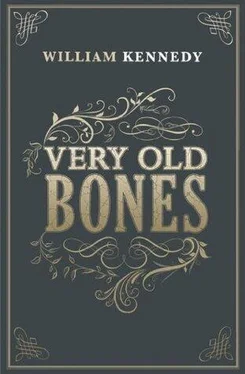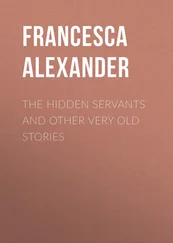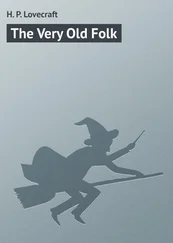The things we do when we’re alone, without a perch or a perspective, and when there is no light in the corner where we’ve been put. The things we do.
When I left Giselle at the Plaza, I walked the streets until I came to Meriwether Macbeth’s corner. Then I went upstairs and sat in Meriwether’s darkness and drank myself to sleep with whiskey. I awoke to dismal day and assayed the work I had previously done on Meriwether’s jottings and tittlings, then set about the task of concluding it as Walker Pettijohn had suggested: expanding the jots, fattening the tittles. I read and culled for two days and two nights, breaking stride only to forage for an editorial survival kit: two sandwiches and three more bottles of whiskey. I decided I was done with the editing when only half a bottle of whiskey remained, and I knew then I had an excellent chance of dying of malnutrition, darkness, and Macbethic bathos. I wrote Pettijohn a note, told him to give to Giselle all money due me for this editing, and also to give the manuscript of my novel to the Salvation Army for public auction, any money realized from its sale to be used to purchase ashes, those ashes to be given free of charge to unpublished authors, who will know how to use them. Then I drank myself quiet.
Giselle is jealous of Molly. The attention she shows me in Molly’s presence is different from the attention she shows me when we are alone. Giselle is always smarter than I judge her to be, no matter how smart I judge her to be. It doesn’t really matter that she is jealous of Molly, though it’s a change for both of us. It truly does matter that I love Molly.
A full day had passed before I realized that it was Giselle and Peter who had found me in my alcoholic coma. I opened a sobering eye to see her standing over my hospital bed, a tube dripping unknown fluid into my arm, my body in original trouble: nothing like this sort of pain ever before.
“You’re still alive, Orson,” was her first sentence.
“That’s not my fault,” I said.
“You idiotic bastard,” she said. “It’s one thing to be crazy, but it’s another thing to be dead.”
“Don’t call me a bastard,” I said, and I lapsed willfully into a coma-like sleep for two more hours. Giselle was still there when I again surfaced.
“You’re getting better,” she told me. “We’re taking you to Albany. You obviously can’t live in this city.”
“Are you coming with me?”
“Yes,” said Giselle.
And I slept then, sweetly, ignorantly
I put undeservedly great faith in hollow objects. What is the purpose of this?
I thought of the Grand View Lake House, which was at the edge of hollowness; all but empty of significance; “dead” would soon be another viable adjective. But it would not really die as long as the Shugrues stayed alive, and the loyal handfuls kept coming in season in enough numbers to cover expenses; and it would not die as long as I moved through its hollowness as helpful artisan, wood-cutter, sweeper of leaves and dead rats, scraper of paint, mower of lawns, outwitter of raccoons, magus of empty rooms.
The Phelans had been coming to the Grand View for more than half a century. Pat Shugrue had worked with Michael Phelan on the New York Central, but quit in ’91 to build three cottages on the shore of Saratoga Lake. Michael took his brood of seven (Tommy, the youngest, was one; Francis, the eldest, was twelve) to one of the cottages (three bedrooms) for a week the following summer, the first annual Phelan Saratoga vacation. When Shugrue upgraded the cottages to a Lake House, the Phelans were there for that first season.
The Phelan boys grew up with Pat Shugrue’s son, Willie, who inherited the hotel and added two wings when Pat and Nora phased themselves out; grew up also with Willie’s wife, Alice, who at first supervised the cooking at the Lake House in the late 1930s, but by the early ’40s was the organized brain behind the business. Alice was also Molly’s closest friend, ever since their days at St. Joseph’s Industrial School, where Catholic girls from Arbor Hill learned cookery and needlework.
Giselle brought me to Albany in early April, 1953, stayed two nights with me in the Phelan house, and in that time revealed such a restlessness that I insisted she go back to her career. “You weren’t put here on earth to be a nurse,” I told her, “nor could I abide watching you try to become one against your will.”
It fell to Molly to oversee my reentry into the human race. An instrument of angelical mercy, she soothed my psychic wounds with gentleness, brought me food and the newspapers, told me stories of her life, convinced me I could trust her with my troubles.
But Molly perceived, as others in the family did not, that my recovery was static; that to recover fully I needed more than this household could offer; and it was she who in the late summer of that year called Alice Shugrue and asked whether she could use me at the hotel, provided I worked for my keep. She said I’d been raised by Peter (the Phelan handyman) and could do carpentry, plumbing, electrical work, and more; that I needed no wages, only a place to stay and something to do with my hands.
And so now, October, 1954, a year and months after that salvational intercession by Molly, something new can begin. The nights are beyond autumn, and beyond even that by the woods on the lake-shore, cold into the marrow, the morrow, reading Finnegan , yes, carry me along, taddy, like you done through the toy fair! And then doesn’t the kerosene for the heater vanish entirely from the world? It does. Himself alone with that book and his own book, a writer and a woodsbee, a man in a manner of wondering, what manner of wondering man is this? A man in love with his wife and his-aunt-your-sister, tadomine. Of all love there is, this has been the most strange, leaving nothing undesired, nothing sired, the lover bald to the world, no heir. Was ever a family so sonless, so cold, dark, and bereft of a future as these fallow Phelan fils?
I was used to being alone here in the cottage, relieved to discover that one did not wither in such solitude; that it really could be a nurturing force. What I did not expect was this onset of winterish night without heat. I put on my overcoat, muffler, hat, and one glove, the other hand free to turn the pages, and I kept reading, ranging now through the book’s final pages, the glorious monologue of Anna Livia Plurabelle: Why I’m all these years within years in soffran, allbeleaved. To hide away the tear, the parted. It’s thinking of all. The brave that gave their. The fair that wore. All them that’s gunne. I’ll begin again in a jiffey. The nik of a nad. How glad you’ll be I waked you! My! How well you’ll feel! For ever after.
Words alone, language alone, not always penetrable (like women with their mysteries; and how they do fill this life with spectacle and wonder), now filling the reader-and-writer with infeasible particulars, always the great challenge, is it not, to fease the particules and not malfease? Giselle was gone again, yet again, but in transition to something other than what she once was; and who knew how that would come out?
“I’ll be up next weekend,” she told me.
“That soon?”
“I like it up here.”
“Not much action.”
“I’m saturated with action,” she said. “I like the calm of this place. I want to photograph it, and Saratoga too.”
So, you see, that’s a change in Giselle. I make no plans on the basis of it, however. Giselle is as mercurial as the early autumn in Saratoga: sunlit day become gelid night. Apart, we move together slowly into the future. But since coming here I do perceive a future, with or without the woman. Molly did this; brought me to see Alice and Willie Shugrue, Alice a tightly wrapped Irish whirlwind who holds the hotel together by dint of will and want: wanting nothing but this place now, living in the South Cottage with the rheumatoid Willie, a waning wisp of a fellow who can no longer afford artisans to stave off the decay of the buildings, can no longer climb a ladder himself. And all the while your man lives in the North Cottage, reading, learning to write, learning how to be alone. And out our windows we all watch the Lake House begin its struggle through yet another winter, and we wonder: Is this the year it collapses of its own hollowness?
Читать дальше












